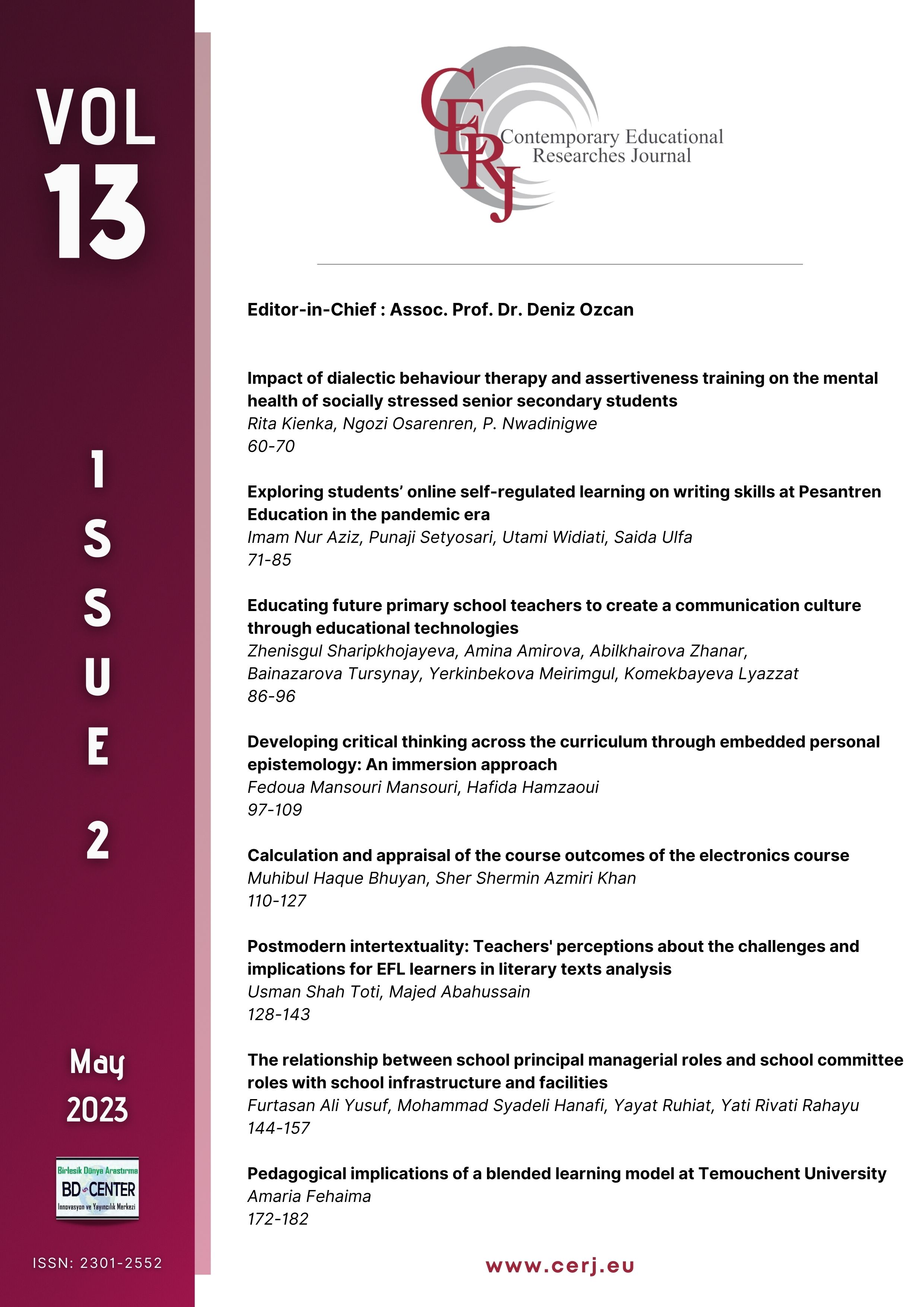Postmodern intertextuality: Teachers' perceptions about the challenges and implications for EFL learners in literary texts analysis
Main Article Content
Abstract
The purpose of this study was to understand postmodern Intertextual perceptions of college-level teachers, the contribution of Intertextuality in comprehending a literary piece of work, and certain challenges facing Saudi EFL learners in meaning construction during the reading process examined in this research. The subjects were five professional teachers from two different colleges who were interviewed in a certain time framework. The researcher analyzed the teachers’ personal experiences, explanations about postmodern reading intertextuality, and its intricacies in learners’ comprehension emerged as dominant themes. The findings show that during teachers’ semi-structured interviews, their meanings, and contents indicated that cultural background, lack of intertextual awareness, stereotype approach, and lack of postmodern literary knowledge can provide impediments in textual analysis and interpretation. Further research is needed to explore more avenues in postmodern intertextual areas and to look into viewing intertextuality from deeper perspectives.
Keywords: Canterbury tales; English teachers; intertextuality; pastiche; postmodernism
Downloads
Article Details

This work is licensed under a Creative Commons Attribution-NonCommercial-NoDerivatives 4.0 International License.
Authors who publish with this journal agree to the following terms:
- Authors retain copyright and grant the journal right of first publication with the work simultaneously licensed under a Creative Commons Attribution License that allows others to share the work with an acknowledgement of the work's authorship and initial publication in this journal.
- Authors are able to enter into separate, additional contractual arrangements for the non-exclusive distribution of the journal's published version of the work (e.g., post it to an institutional repository or publish it in a book), with an acknowledgement of its initial publication in this journal.
- Authors are permitted and encouraged to post their work online (e.g., in institutional repositories or on their website) prior to and during the submission process, as it can lead to productive exchanges, as well as earlier and greater citation of published work (See The Effect of Open Access).
